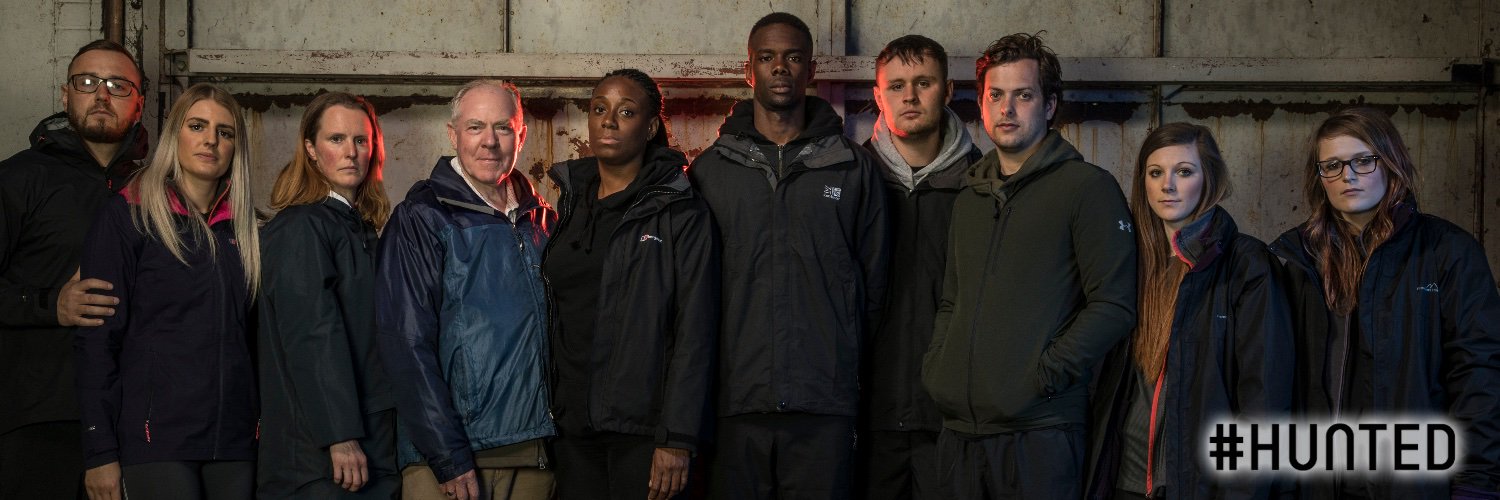As Hunted comes to Ripon, I reveal one of my guilty pleasures.
Channel 4 TV show Hunted is one of my guilty pleasures.
I think I like it because it’s basically a game of hide and seek. A number of people go on the run and they have to remain hidden from professional hunters. If they can reach an extraction point after about four weeks without being caught, they share £100,000.
Well, in this week’s episode the hunters came to Ripon, so I got very excited. Then, I could hardly believe it when they called on one of my neighbours as they tried to track down the fugitives. I have to wait until next week to find out if they were caught.
I can see why they filmed the programme in the summer, though; with the River Ure in flood, they wouldn’t have been able to come down my road today.
Social networks
The hunters have a mass of technology at their disposal – CCTV images, mobile phone tracking and intercepts, automatic number plate recognition and much much more. But with a quick look on the fugitives’ social media accounts, they can find a huge amount of useful information about them.
One of the first things the hunters do is to build a profile of the fugitives from their posts and images online. Those of us with active social media profiles are so much easier to track because of the wealth of information about ourselves that we share with the world.
The most useful information the hunters gain from fugitives’ social media sites, though, are about their social networks. To stay away, the fugitives need to rely on other people for food and shelter. Very rarely do any of the fugitives stay away for long without having to contact someone they know. By keeping an eye on people close to them, the hunters frequently intercept the fugitives when they go to them for help.
Social network theory plays a large role in explaining why some fugitives are caught so quickly and why others stay away. Close ties seem to (inadvertently) betray people more than weak ties. Having contact with family members and friends when on the run is not a good idea as hunters are likely to have their phones tracked and tapped. Close ties are more likely to be reliable, helpful and trustworthy, but also more likely to get you caught.
Weak ties are people who you don’t know so well – such as acquaintances or friends or family members who you don’t see very often. In typical networks, there are many weak ties, often too many for the hunters to monitor. These contacts can be helpful in moving you about the country or connecting you to other people.
Their greatest strength lies in connecting you to people you don’t know. Strangers will not show up on your social media sites and, unless they are tracked back to people you know, are less likely to come to the attention of the hunters. But, it is essential that they are trustworthy. Are they likely to help you for nothing in return?
Playing Hunted
I have brought my obsession for the TV show into the classroom. To help consolidate my teaching on concepts and evidence relating to social networks, social capital and social support for my Masters students, I play a game of Hunted with them.
I split the group into two teams. One is a group of hunters and have to develop a strategy for catching the fugitives. In the other group, two are fugitives and have to develop a strategy to stay away. Both groups have to draw upon as many concepts they have been taught as possible, and support their choices with relevant research evidence.
After they prepare their strategies, the two groups state their plans. The winning group is the one that has used the most concepts relating to social networks and is most likely to either catch the fugitive, or stay away from the hunters.
As a classroom exercise, we don’t know exactly what would happen in the same scenario in the real world. Not that I’m advocating that the students should go on the run, but I’d like to think that they would be a little more prepared having studied my module if they did find themselves in that situation!






